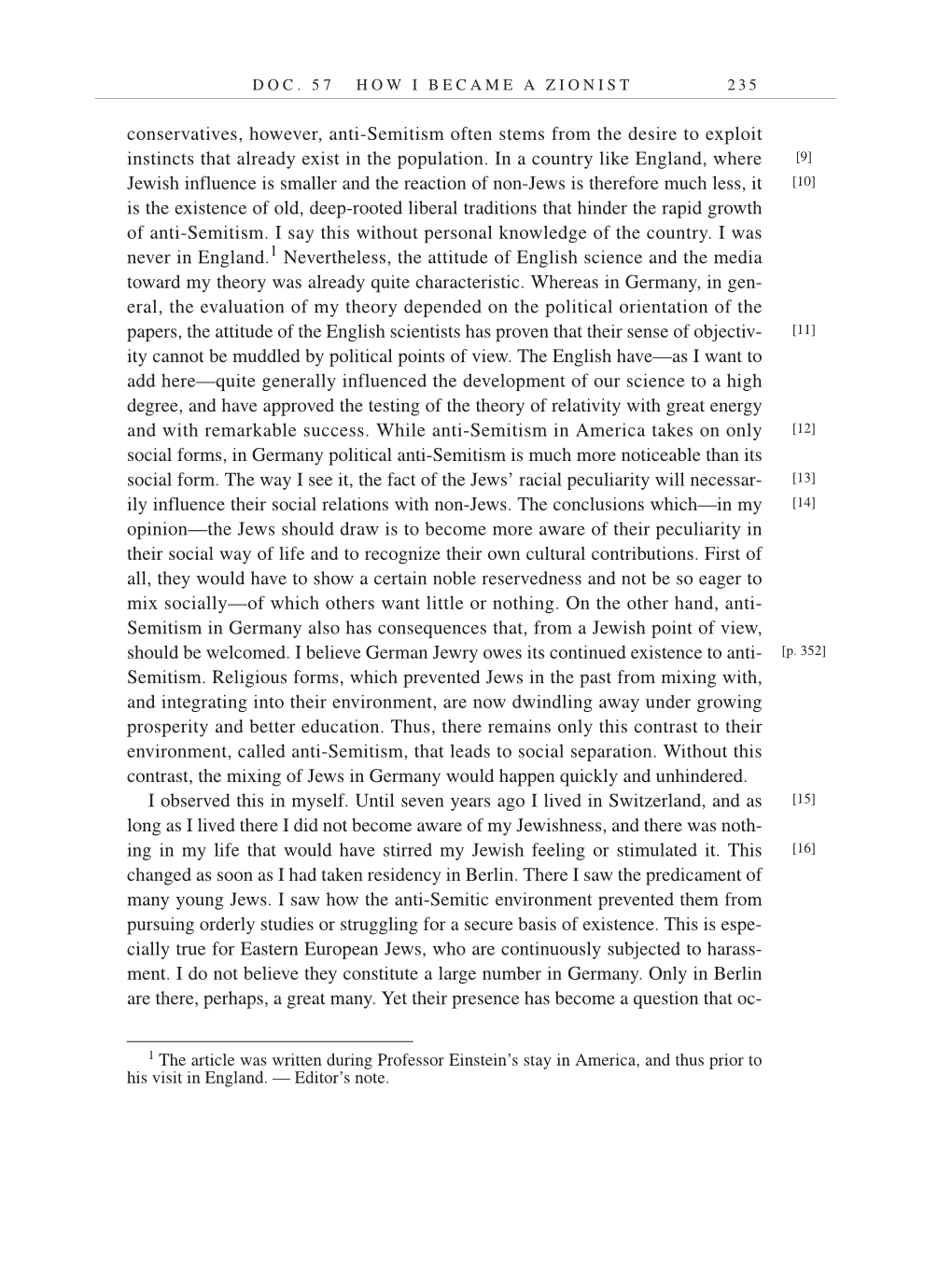D O C . 5 7 H O W I B E C A M E A Z I O N I S T 2 3 5
conservatives, however, anti-Semitism often stems from the desire to exploit
instincts that already exist in the population. In a country like England, where
Jewish influence is smaller and the reaction of non-Jews is therefore much less, it
is the existence of old, deep-rooted liberal traditions that hinder the rapid growth
of anti-Semitism. I say this without personal knowledge of the country. I was
never in
England.1
Nevertheless, the attitude of English science and the media
toward my theory was already quite characteristic. Whereas in Germany, in gen-
eral, the evaluation of my theory depended on the political orientation of the
papers, the attitude of the English scientists has proven that their sense of objectiv-
ity cannot be muddled by political points of view. The English have—as I want to
add here—quite generally influenced the development of our science to a high
degree, and have approved the testing of the theory of relativity with great energy
and with remarkable success. While anti-Semitism in America takes on only
social forms, in Germany political anti-Semitism is much more noticeable than its
social form. The way I see it, the fact of the Jews’ racial peculiarity will necessar-
ily influence their social relations with non-Jews. The conclusions which—in my
opinion—the Jews should draw is to become more aware of their peculiarity in
their social way of life and to recognize their own cultural contributions. First of
all, they would have to show a certain noble reservedness and not be so eager to
mix socially—of which others want little or nothing. On the other hand, anti-
Semitism in Germany also has consequences that, from a Jewish point of view,
should be welcomed. I believe German Jewry owes its continued existence to anti-
Semitism. Religious forms, which prevented Jews in the past from mixing with,
and integrating into their environment, are now dwindling away under growing
prosperity and better education. Thus, there remains only this contrast to their
environment, called anti-Semitism, that leads to social separation. Without this
contrast, the mixing of Jews in Germany would happen quickly and unhindered.
I observed this in myself. Until seven years ago I lived in Switzerland, and as
long as I lived there I did not become aware of my Jewishness, and there was noth-
ing in my life that would have stirred my Jewish feeling or stimulated it. This
changed as soon as I had taken residency in Berlin. There I saw the predicament of
many young Jews. I saw how the anti-Semitic environment prevented them from
pursuing orderly studies or struggling for a secure basis of existence. This is espe-
cially true for Eastern European Jews, who are continuously subjected to harass-
ment. I do not believe they constitute a large number in Germany. Only in Berlin
are there, perhaps, a great many. Yet their presence has become a question that oc-
1
The article was written during Professor Einstein’s stay in America, and thus prior to
his visit in England. — Editor’s note.
[9]
[10]
[11]
[12]
[13]
[14]
[p. 352]
[15]
[16]
